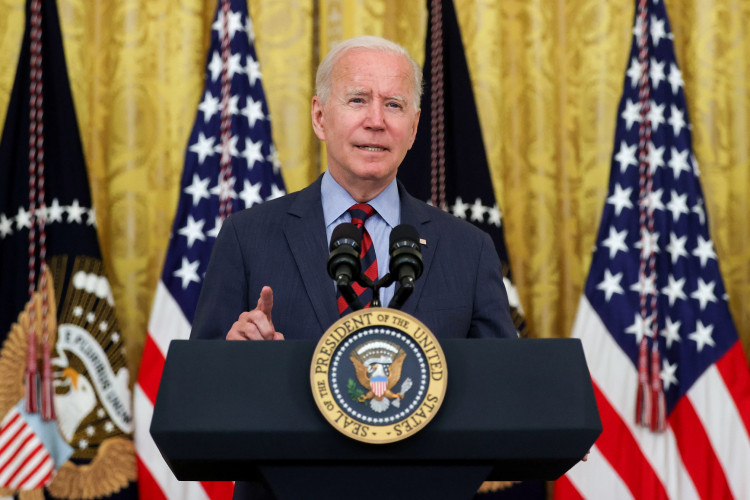The United States has imposed travel restrictions on its staff in Israel and is urgently engaging with global partners to dissuade Iran from launching a retaliatory strike against Israel, as fears grow of a potential escalation into a wider regional conflict in the Middle East. The heightened concern comes in the wake of an attack on an Iranian facility in Syria, which Tehran claims was carried out by Israel and resulted in the deaths of 12 people, including a senior leader of Iran's Islamic Revolutionary Guard Corps.
In response to the growing threat, the U.S. embassy in Jerusalem issued a security alert on Thursday, prohibiting its employees and their family members from undertaking personal travel outside of the greater Tel Aviv, Jerusalem, and Be'er Sheva areas until further notice. The State Department emphasized that the limits were imposed "out of an abundance of caution," as officials closely monitor the evolving security situation in the region.
The Pentagon confirmed that Gen. Michael "Erik" Kurilla, the commander of U.S. Central Command, had "moved up" a previously scheduled trip to Israel to meet with senior Israeli military leaders "due to recent developments." Defense Secretary Lloyd Austin also held a phone conversation with Israeli Defense Minister Yoav Gallant on Thursday afternoon to discuss the current situation and reaffirm the U.S.'s unwavering commitment to Israel's security against threats from Iran and its proxies.
While the U.S. does not maintain direct diplomatic ties with Iran, Secretary of State Antony Blinken has been actively engaging with his counterparts in countries that do, encouraging them to use their influence to dissuade Iran from taking military action. In his conversations with the foreign ministers of China, Turkey, and Saudi Arabia, Blinken emphasized that escalation is not in anyone's interest and urged these countries to convey this message to Iran.
President Joe Biden, during a White House press conference on Wednesday, acknowledged that Iran was "threatening to launch a significant attack on Israel" and assured Israeli Prime Minister Benjamin Netanyahu that the U.S. commitment to his country's security remained "ironclad." Biden pledged to do everything in his power to protect Israel's security, underscoring the gravity of the situation.
U.S. officials have informed lawmakers on Capitol Hill that they believe Iran could retaliate against Israel in the coming days, potentially using drones and missiles to target "regional assets." Despite the administration's efforts to deter an Iranian strike, officials remain cautious, acknowledging that Iran could still change course.
The renewed concern over a widening conflict in the Middle East comes as tensions continue to escalate in the region. Israel has attacked numerous targets linked to Iran in recent years, primarily to disrupt arms transfers to Hezbollah and other proxy groups. However, the Israeli military has not claimed responsibility for the recent incident in Damascus, which occurred on April 1.
The growing tensions in the Middle East also coincide with somber Eid celebrations in Gaza, where Palestinians are grappling with severe food shortages despite Israeli promises to allow more humanitarian aid into the enclave. White House press secretary Karine Jean-Pierre stated on Thursday that famine in Gaza was "imminent," echoing USAID Administrator Samantha Power's assessment that it was "credible" to believe that famine had already begun in the territory.
As the death toll in Gaza surpasses 33,600 people, according to the enclave's Health Ministry, in the six months since the Hamas-led attack on Israel on October 7, the militant group's political leader, Ismail Haniyeh, expressed his desire for a cease-fire deal. However, talks to secure a truce and the release of remaining hostages remain deadlocked, further complicating the already fragile situation in the region.





